Lagrima (A Tear)
Lagrima (A Tear)
Fado began as a howl out of the dives and houses of ill repute along the Lisbon waterfront. The lyrics dwell on themes of longing, sadness and fatalism, to a wistful accompaniment made up of guitars and woodwinds. Melodically, Fado draws on Arabic, African and Iberian influences. The Cape Verdean Morna style made famous by Cesaria Evora is a close cousin.
Lagrima
The unrivaled queen of the Portuguese fado was Amália Rodrigues. She was born in Lisbon's Alfama district in 1920. Against the wishes of her family, as a teen Rodrigues performed as a tango dancer, and at 19 she made her professional singing debut alongside her sister, Celeste, at the fashionable Lisbon nightspot Retiro da Severa.

Amalia Rodrigues
Within a year she was a star, selling out clubs every night; in 1944, she traveled to Brazil, drawing huge crowds during her stay at the Copacabana Casino and later returning to Rio de Janeiro to make her first recordings.
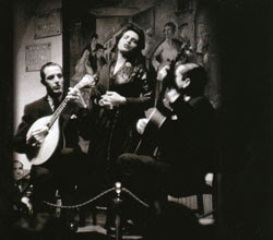
Fado
In 1950, while performing at the Marshall Plan international benefit shows, she introduced 'April in Portugal' to international audiences, under its original title "Coimbra".
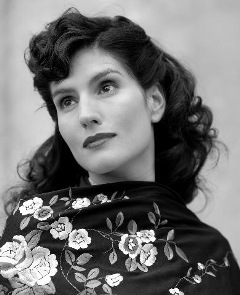
Amalia Rodrigues
By the late 1950s the USA, Britain, and France had become her major international markets; Japan and Italy followed suit in the 1970s. In France especially, her popularity rivaled her Portuguese success, and she graduated to headliner at the prestigious Olympia theatre within a matter of months.
In all, Rodrigues recorded upwards of 170 albums and even appeared in a number of feature films, retaining her drawing power even after the popularity of fado itself began to dissipate during the 1960s.
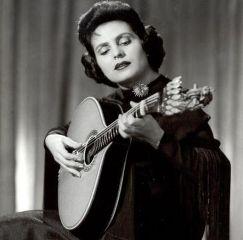
Amalia Rodrigues
A period of depression, and an introspection led to the recording of two very personal albums: 'Gostava de Ser Quem Era' (1980) (literally 'I Wish I Were whom I Was')and 'Lágrima': all these songs were written by her own hand, since she used the poems she herself wrote. Her last all-new studio recording, Lágrima, was released in 1983.

Lagrima
Music to Amalia’s lyrics wrote Carlos Gonçalves. He was born in Beja, at the Portuguese Alentejo. At thirteen years old he is passionated by the Portuguese guitar and starts his learning.

Carlos Goncalves
In 1957, when he moves to Lisbon, Carlos Gonçalves begins his artistic life thanks to his technical skills which immediately allowed him to play for the great Fado artists of that time.
In 1968, Carlos Gonçalves starts his collaboration with Amalia Rodrigues, taking part in the group directed by Jose Fontes Rocha, to whom soon replaced forming then a group with Sebastiao Pinto Varela (Portuguese guitar), Jorge Fernando (viola) and Joel Pina (bass viola).
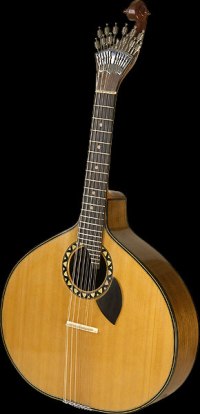
Portuguese Guitarra
Go ahead the prolific years of musical composition dedicated to Amália, most of the times composing the music for the poetry written by the own Amália Rodrigues with a special mention of the album “Lágrima” where this collaboration was documented forever.
Amalia Rodrigues died in bed at her home in Lisbon. She was 79 years old.
Today, Fado is often watered down with pop or fossilized in conservatories. New vocalists are singing Amalia's songs, and some of them have beautiful voices, but none of them is as wise, brave and foolhardy as she was. In Amalia's hands, Fado was a black rose with a sultry perfume and long, sharp thorns. She smelled the one, bled from the other, and kept coming back for more.

Amalia Rodrigues
Amália Rodrigues – Lágrima, lyrics
Cheia de penas me deito E com mais penas me levanto Já me ficou no meu peito Jeito de te querer tanto Tenho por meu desespero Dentro de mim o castigo Eu digo que não te quero E de noite sonho contigo Se considero que um dia hei-de morrer No desespero que tenho de te não ver Estendo o meu xaile no chão E deixo-me adormecer Se eu soubesse que morrendo Tu me havias de chorar Por uma lágrima tua Que alegria me deixaria matar
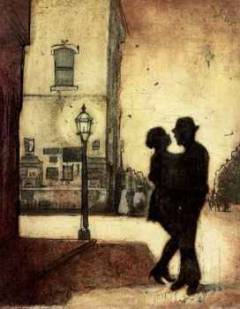
Fado
English Translation
Full of sorrow I lay down And with more sorrow I get up I've got in my chest Way of wanting you so much I have for my despair Inside of me the punishment I say I don't want you And at night I dream of you If I believe that one day I will die In the despair I have for not seeing you I put my shawl on the ground And let myself fall asleep If I knew by dying You would cry me For one of your tears What a joy would let me kill
Last Updated (Saturday, 21 March 2015 13:17)








